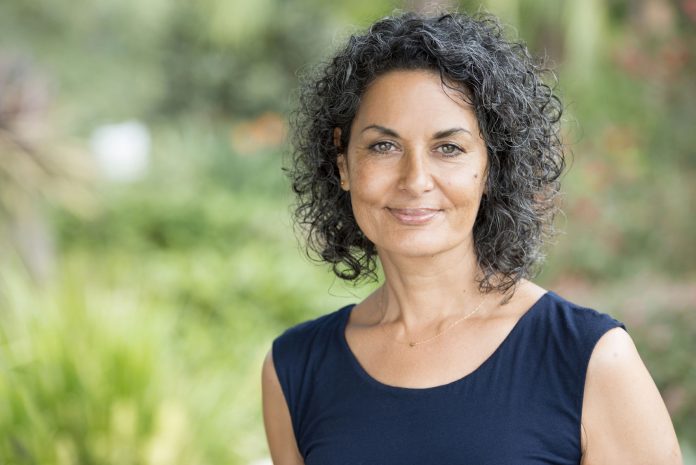“Physician, heal thyself”
The Bible, Luke 4.23 (King James Version).
We as doctors are fond of treating ourselves, citing the old proverb, “Physician, heal thyself” as our justification. But ‘heal thyself’ does not mean treat yourself.
‘Heal thyself’ means that we are to live in a way that keeps us well, and if we do not, and as a consequence we become ill, to deal with the underlying cause of why, that we may heal the root cause of our illness and disease, as well as treating the surface symptoms.
It means being willing to attend to one’s own ills, before attending to those of others, thus serving as a living inspiration of how life can be lived. Inherent in it is the understanding that we cannot truly care for others if we don’t, first and foremost, care for ourselves.
But our training as doctors has taught us, indeed demanded of us, the absolute opposite of this truth.
Our training teaches us to not care for ourselves
We have been taught to override our bodies’ needs for a balanced life, with work, rest and time to foster healthy relationships, in order to learn the vast amounts of material we are required to know; we have been asked to work for long hours and under abusive conditions that would not be permissible in other professions; we are dealing with people at their most vulnerable and also their most difficult without true support; and we have been told that if we express any sense of vulnerability in the face of all this, our licence to practice medicine will be under threat.
At no stage in our careers are we treated as ‘normal’ people, with all the frailties, needs and great beauty of those we care for.
And yet somehow, as if by magic, we are supposed to come through this training ordeal with our love, care and compassion for other people intact, and in good physical, mental and emotional health, and will be punished if we fail on this count too.
We go into medicine with a deep love of and care for people, and a strong desire to help ease their suffering. We start our training as beautiful, compassionate people, filled with the joy of service, but this compassion and care are slowly eroded away by the sheer weight and volume of all we are expected to know and do; by the fatigue, exhaustion, burnout, depression, that are almost inevitable if you are asked to work harder and longer than is physically possible, day in, day out, and are exposed to the entire range of human misery and suffering on a daily basis, with no real way of dealing with it.
We tend to harden up, and become harsh and insensitive, or take it all on and suffer compassion fatigue or burnout, or just make ourselves sick.
And then what do we do?
We tend to self-diagnose, self-medicate (including with food, alcohol and recreational drugs), and self-treat, when we can, until we can no longer ‘get away with it’, because we are too busy to seek help, or too ashamed that we are sick, especially when that illness is so-called ‘mental’.
My own experience of illness
I know that when I was a young doctor I became seriously exhausted and depressed, but rather than admitting I had a problem and seeking professional help, knowing that may well impact on my career, I self-medicated with alcohol until I was suicidal and very, very ill. I was fortunate to have dear friends who supported me and took me to a rehab, and without them, I am sure I would not be here today.
Later in life after the birth of my second child I became physically ill, and to begin with tried to self-diagnose and treat, leading to me being misdiagnosed with a serious condition and subjected to unnecessary major surgery. If I had just gone to my GP in the first place, the correct diagnosis would probably have been made and a few antibiotic tablets would have done the trick.
What makes us think we can treat ourselves?
There is a massive arrogance in us that thinks we are the ones best placed to care for ourselves, that we can be objective and see ourselves clearly. Apart from the fact that this is not true, and that as doctors we often underestimate how ill we are or misdiagnose ourselves, it is lovely to have the support of a trusted GP, to share with them how you are feeling and how you truly are, and to develop a relationship with them that can sustain you through the challenging times in life.
One of the obstacles to developing this relationship has been the fear of mandatory reporting, a very real fear that if you expose yourself as being ill, your licence to practice may be suspended or revoked.
There is a move to change the mandatory reporting laws for doctors in this country, which is long overdue, especially for those struggling with drug and alcohol addiction and mental health issues.
Doctors are people too. We deserve support. We deserve true care. We deserve to be treated with the care and compassion we are so generous in offering others. This process needs to start with ourselves. No longer can we wait for others to start caring for us, while we complain about the state of affairs today. It is up to us to start to care for ourselves.
The more we care for ourselves, deeply, on an everyday basis, the more willing and able we will be to call out abuse in its many and varied forms as it comes at us, to say no to it, to support each other, to stand as one, to make changes in our workplaces and our lives that support us to be healthy and well, in body, mind and soul, and then bring that same true care to all those we care for, each and every day.










This is such sage advice from a doctor to other doctors as to the pitfalls of trying to self-diagnose and then treating yourself, as I am sure many doctors do. But it also has a wider medically focused audience these days, as with the advent of the internet so many are now consulting Dr Google as to the nature of their symptoms – definitely not a very wise move at all.
A beautiful calling out here, Anne. It is time that doctors were treated compassionately by their profession and by our government. Far too much pressure is put upon them and too much criticism. The hours they are expected to work and the pressures to work on regardless of their health is abhorrent. The proof is in the result in the figures for suicide and mental illness within the profession.
Mandatory reporting, as it is now, especially of mental issues that require treatment, that must go. Doctors should not fear being struck off, holding them back from seeking help for their problems. If a doctor is experiencing extreme stress and anxiety, they should be able to seek help in the early stages without this fear.
There is so much in this article that every trainee and qualified health professional should read. Having observed the hours, intensity and demands on doctors working in hospitals, I would agree that they are subjected to worse abuse than many other professions. These are the people we trust our lives with, yet they are being pushed to breaking point by the working conditions. I feel the intensity begins very early, even back at high school when a teenager knows they want to be a doctor and all the pressure to get good enough marks. I also agree that mandatory reporting is behind a great deal of harm in the medical profession, including self-treating, self-medicating with alcohol etc. and even suicide. The current state of play where doctors are expected to be perfect and never falter sets them up for a fall and the rates of anxiety, suicide and burnout being well above societal averages shows this.